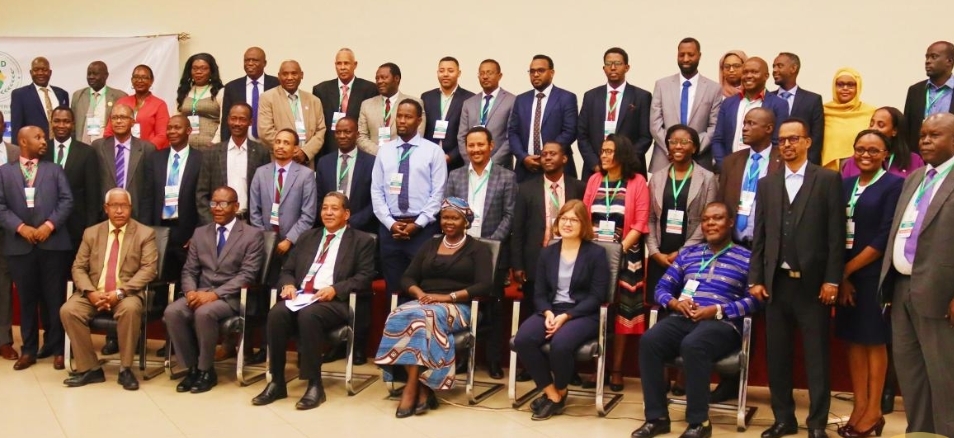The Intergovernmental Authority on Development (IGAD) on Wednesday commenced a three-day discussion to review and develop a regional qualification framework (RQF) to recognize skills and competencies citizens in the partner states.
Founded in January 1986, the IGAD is a regional economic community comprising eight countries of Djibouti, Eritrea, Ethiopia, Kenya, Uganda, Somalia, Sudan and South Sudan formed to promote peace, security, integration and sustainable prosperity.
The validation of the draft regional framework being conducted at Best Western Hotel in Entebbe has attracted education, security, labour and employment experts who are expected to harmonize and compare standards for qualification that limits the mobility of students, workers, and business people in the region.
Kassa Kebede Tsegaye from Djibouti, the IGAD’s Senior Coordinator Education, Science, Technology and Innovation (ESTI) told URN that the framework being developed is to help qualifications of citizens, including refugees to promote social transformation among the partner states with a combined population of 230 million people.
Lucy Daxbacher, IGAD’s Head of Mission in Uganda said the framework will facilitate free movement of persons to regain employment opportunities for employability to achieve the desired regional economic and social incorporation.
Dr Eusebius Juma Mukhwana, the Director General of Kenya Qualification Authority says the qualification framework aided by the Unstructured Supplementary Service Data (USSD), a global system for mobile communications protocol will help partner states control falsification of documents.
Joseph Kikomeko, the Commissioner in charge of Technical and Vocational Education and Training (TVET) in the Ministry of Education and Sports, Uganda observed that the qualification framework will help expand opportunities between various institutions and educational levels.
Already, within each of the member states there are efforts and processes at different levels to develop national qualification frameworks (NQF) based on learning outcomes, and Kenya already completed developing her NQF and, which is being implemented.
After review, the regional instrument is expected to be adopted by the IGAD council of education ministers in February 2023.
The instrument will recognize 20 different types of formal education qualifications including primary, vocational and secondary, and higher education such as undergraduate and postgraduate.

